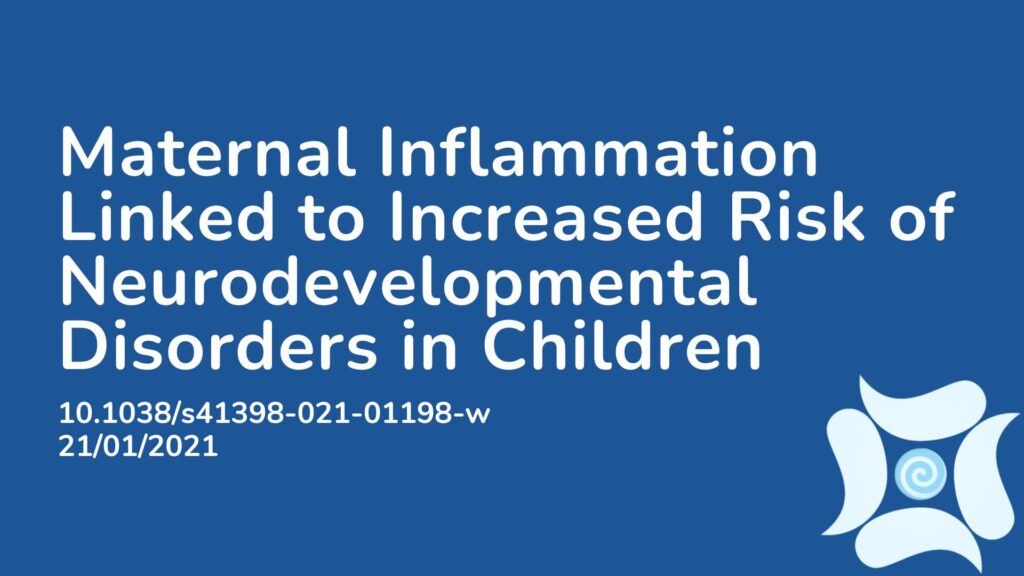Summary:
Systemic chronic inflammation (SCI) is involved in numerous diseases such as cardiovascular disease, cancer, depression, and neurodegenerative disorders. Unlike acute inflammation, which is typically caused by an infection, SCI is persistent and worsens with age. Various environmental and lifestyle factors, such as obesity, poor diet, stress, inactivity, and pollution, contribute to SCI. Parental SCI may also increase the risk of inflammatory conditions in children, and SCI during pregnancy can negatively impact the immune, metabolic, and neurological systems of the child. Research shows that maternal inflammation is linked to autism spectrum disorder (ASD), attention deficit hyperactivity disorder (ADHD), and Tourette syndrome (TS). This chronic inflammation may result from conditions such as obesity, pre-eclampsia, stress, and autoimmune disorders. This systematic review examined associations between maternal inflammation and common neurodevelopmental disorders (NDDs) in children. Maternal factors linked to NDDs such as ASD included obesity, gestational diabetes, pre-eclampsia, pollution, stress, depression, autoimmune diseases, and infections. For ADHD, factors included obesity, pre-eclampsia, smoking, low socioeconomic status, stress, autoimmune diseases, and asthma. The review demonstrated that a wide range of maternal inflammatory conditions are associated with common NDDs in children. Given the rising prevalence of NDDs, it is critical to further explore maternal risk factors and identify preventable factors that could reduce the incidence of these disorders.
Abstract:
Inflammation is increasingly recognized as a cause or consequence of common problems of humanity including obesity, stress, depression, pollution and disease states such as autoimmunity, asthma, and infection. Maternal immune activation (MIA), triggered by both acute and systemic chronic inflammation, is hypothesized to be one of the mechanisms implicated in the pathogenesis of neurodevelopmental disorders (NDD). Although there is substantial preclinical evidence to support the MIA hypothesis, the human evidence is disparate. We performed a systematic review on human studies examining associations between maternal inflammatory states and offspring NDDs (autism spectrum disorder- ASD, attention deficit hyperactivity disorder-ADHD, Tourette syndrome-TS). 32 meta-analyses and 26 additional individual studies were identified. Maternal states associated with ASD include obesity, gestational diabetes mellitus, pre-eclampsia, pollution, stress, depression, autoimmune diseases, and infection. Maternal states associated with ADHD include obesity, pre-eclampsia, smoking, low socioeconomic status (SES), stress, autoimmune disease, and asthma. Maternal states associated with TS include low SES, depression, and autoimmune diseases. Diverse maternal inflammatory states in pregnancy are associated with common offspring NDDs. Given the increased prevalence of NDDs, there is urgent need to explore relative and cumulative maternal risk factors and disease mechanisms. Defining preventable risk factors in high-risk pregnancies could mitigate the expression and severity of NDDs.
Article Publication Date: 21/01/2021
DOI: 10.1038/s41398-021-01198-w



